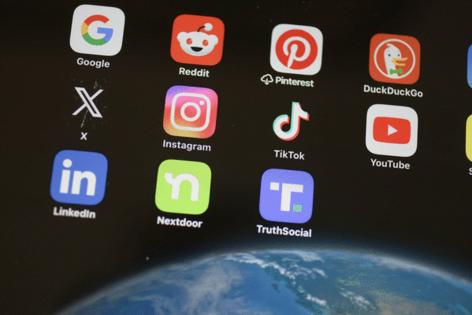Commentary: Is your favorite influencer's opinion bought and sold?
Published in Op Eds
Your addictive doomscrolling on X, TikTok or Instagram may also be the latest nexus for millions of dollars in secret political corruption.
Over the last month, the problem has come into sharp relief. Newly surfaced documents show that more than 500 social media creators were part of a covert electioneering effort by Democratic donors to shape the presidential election in favor of Kamala Harris.
Payments went to party members with online followings but also to non-political influencers — people known for comedy posts, travel vlogs or cooking YouTubes — in exchange for “positive, specific pro-Kamala content” meant to create the appearance of a groundswell of support for the former vice president.
Meanwhile, a similar pay-to-post effort among conservative influencers publicly unraveled. The goal was to publish messages in opposition to Health and Human Services Secretary Robert F. Kennedy Jr.’s push to remove sugary soda beverages from eligible SNAP food stamp benefits.
Influencers were allegedly offered money to denounce soda restrictions as “an overreach that unfairly targets consumer choice” and encouraged to post pictures of President Donald Trump enjoying Coca-Cola products. After right-leaning reporter Nick Sortor pointed out the near-identical messages on several prominent accounts, posts came down and at least one of the influencers apologized: “That was dumb of me. Massive egg on my face. In all seriousness, it won’t happen again.”
In both schemes, on the left and the right, those creating the content made little to no effort to disclose that payments could be involved. For ordinary users stumbling on the posts and videos, what they saw would have seemed entirely organic.
In the influencers’ defense, they didn’t break any rules — because none exist.
We used to demand minimal levels of transparency for paid endorsements. In the 1970s, the U.S. enacted a series of reforms requiring new disclosures for those seeking to shape elections. Television, radio and print ads for political campaigns must specify the sponsors, and billboards or pamphlets sent by mail also feature small-print reminders of the groups responsible.
Social media, however, is the Wild West of advocacy. Although influencers are generally required by the Federal Trade Commission to disclose paid endorsements for products, politics are a different matter. Most election-related communications fall under the jurisdiction of the Federal Election Commission. But the FEC commissioners debated the issue without resolving the problem. A proposal floated in December 2023 to enact basic rules for influencers made no headway.
There was a momentary push in 2017 for stricter social media disclosures in the political realm. The discovery of foreign influence campaigns aimed at the 2016 presidential election set off alarm bells. As a result, the major tech platforms began working to track and close so-called sock puppet accounts operated by the Russian and Chinese government. Yet few reforms were institutionalized, and as more and more Americans get their news from social media, the problem remains largely unchecked.
That has left the entire social media landscape vulnerable to hidden manipulation, where money from interest groups or corporations or even rich individuals can silently shape what appears to be authentic discourse. This corrosion of reality undermines the very foundation of democratic deliberation.
Democracy requires a minimal level of shared facts and good-faith engagement. Secret payments in support of candidates or causes destroy both, corrupting the “marketplace of ideas,” where the best arguments are supposed to naturally rise to prominence through competition. If genuine public sentiment becomes indistinguishable from manufactured opinion, we lose our collective ability to recognize the truth and make informed decisions. Everything from local zoning decisions to soda bans to presidential elections can be skewed.
Former Supreme Court Justice Louis Brandeis famously noted that “sunlight is ... the best disinfectant.” Transparency in political influencing requires regulatory action. The Federal Election Commission must act and establish clear disclosure requirements for paid political communications on social media. Congress should expand the definition of electioneering and political-payola disclosure to include influencer content. Platforms must implement more robust paid content and disclosure tools.
Most importantly, we as citizens must demand reform. We should support influencers who voluntarily disclose their financial relationships and conflicts of interests, and question those who don’t.
If we fail to address the growing influence of secret money in the digital public square, the risk is dire: We will surrender our collective decision-making ability and our democracy to whoever can afford to purchase the most compelling voices.
____
Lee Fang is an independent journalist. He publishes an investigative newsletter at leefang.com.
_____
©2025 Los Angeles Times. Visit at latimes.com. Distributed by Tribune Content Agency, LLC.




























































Comments